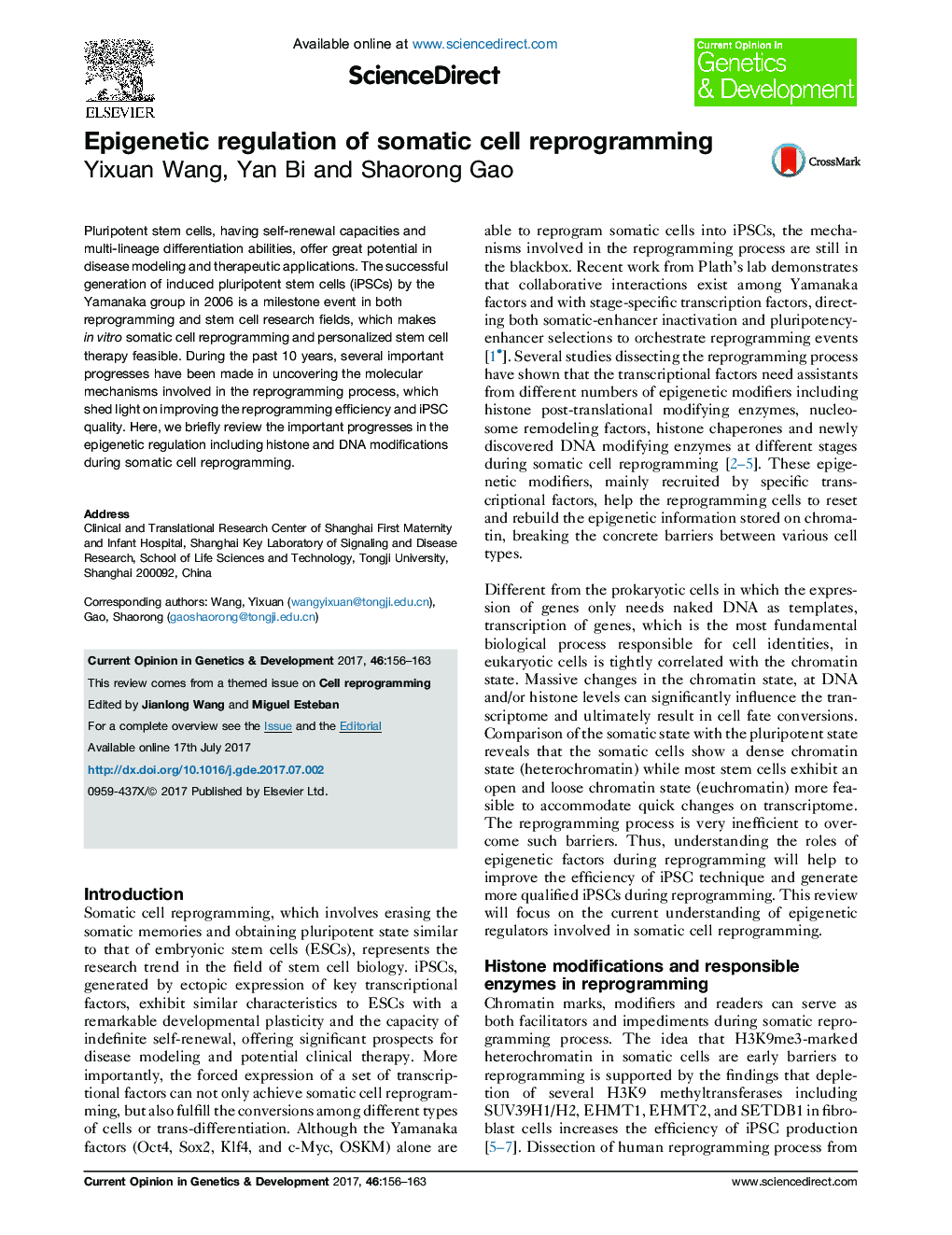| Article ID | Journal | Published Year | Pages | File Type |
|---|---|---|---|---|
| 5585704 | Current Opinion in Genetics & Development | 2017 | 8 Pages |
Pluripotent stem cells, having self-renewal capacities and multi-lineage differentiation abilities, offer great potential in disease modeling and therapeutic applications. The successful generation of induced pluripotent stem cells (iPSCs) by the Yamanaka group in 2006 is a milestone event in both reprogramming and stem cell research fields, which makes in vitro somatic cell reprogramming and personalized stem cell therapy feasible. During the past 10 years, several important progresses have been made in uncovering the molecular mechanisms involved in the reprogramming process, which shed light on improving the reprogramming efficiency and iPSC quality. Here, we briefly review the important progresses in the epigenetic regulation including histone and DNA modifications during somatic cell reprogramming.
